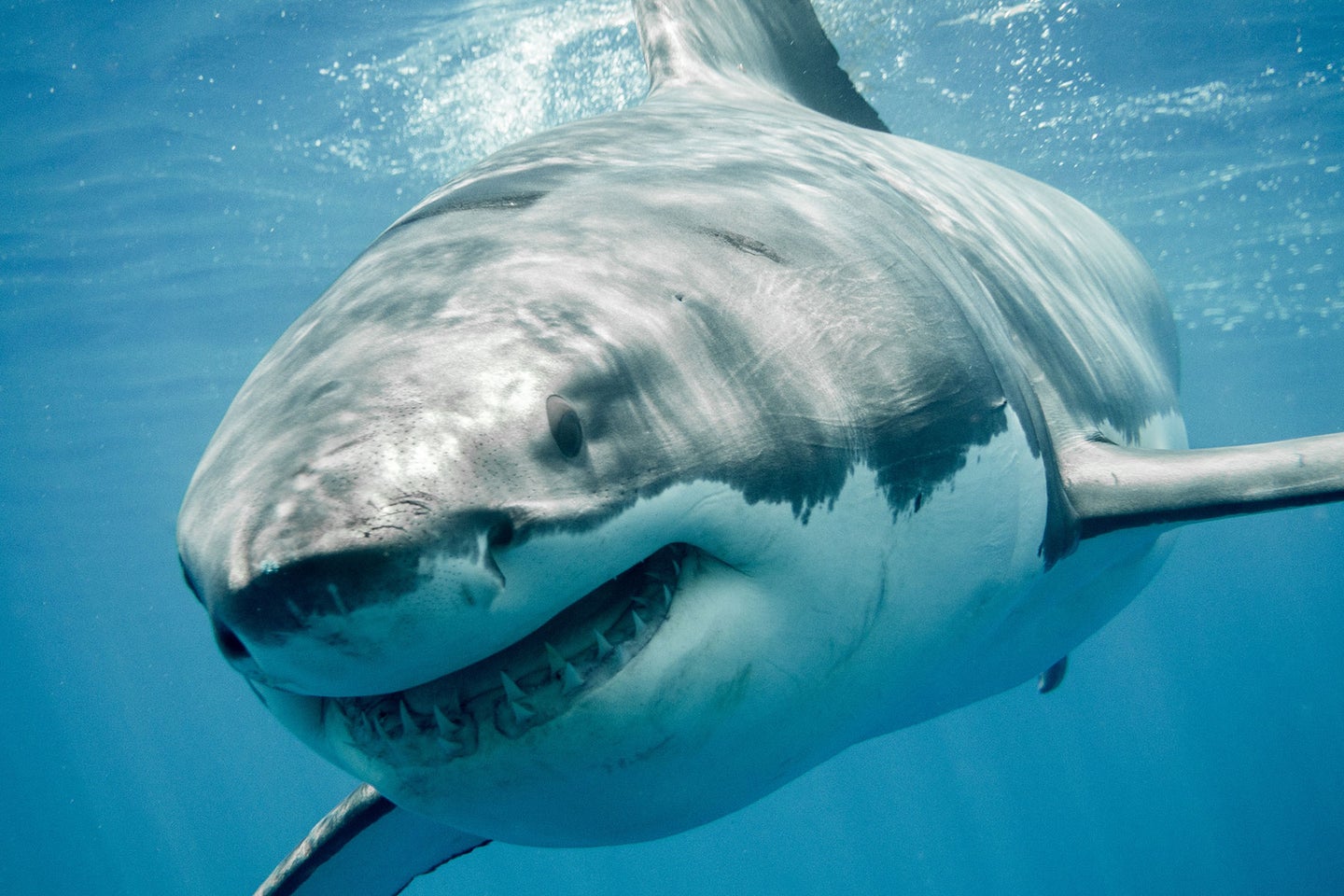Great White Sharks Are Now Prolific Off the Coast of Massachusetts

Great white sharks are making their presence known off the coast of Massachusetts this season. Last year, 133 sharks were reported off the Cape. This year, boaters and beachgoers are seeing the sharks with even more frequency. The rise in great white shark sightings represents a marked increase from the early 2000s, when researchers were hard-pressed to find and tag Great Whites in New England waters at all.
Greg Skomal, a well-known great white shark researcher in New England told Scientific American that he didn’t tag his first great white in Cape Cod until 2009. Now, the great whites dotting the Cape Cod shoreline are a relatively common sight. The area is now known to have one of the few trackable populations of great whites in the world, with numbers that rival populations in California and Australia.
Researchers at the Atlantic White Shark Conservancy (AWSC) have estimated that over 600 Great Whites call Cape Cod home for part of the year, namely June through October, before they migrate towards Florida for the winter season.
Megan Winton, a fisheries scientist at AWSC recently told National Geographic that Cape Cod has “potentially the highest density of sharks in the world.” Winton’s data is still in the pre-publication stage.
According to the National Oceanic and Atmospheric Administration (NOAA), a rebounding population of grey seals along the Massachusetts coast has brought the sharks back. Seals were once culled by commercial fishermen in the 1960s, until they were protected under the Marine Mammal Protection Act of 1972. It took decades for the seals to establish pupping colonies. But today, up to 50,000 seals have been estimated along Southeastern Massachusetts. Great white populations have also benefited from federal and state protections put into place in 1997 and 2005, NOAA says.
But with increased shark research, comes public fear. To avoid a JAWS moment, the Cape Cod National Seashore released a helpful infographic to educate beachgoers. “Cape Cod’s waters are part of a natural and wild marine ecosystem with a rich diversity of sea life, including sharks and seals,” the National Park Service wrote in a recent Facebook post. “Seals are the major prey species for the great white shark. Sharks often feed on seals close to shore, and they’ve been observed near swimming beaches.”
Related: Watch a Massive Great White Shark Circle a Lone Fisherman’s Small Boat
Though shark attacks are rare, there have been 5 attacks along Cape Cod’s National Seashore since 2012, with one tragic fatality documented in 2018. Folks looking to swim or surf fish at the beaches on the Cape can now use the Sharktivity app to track sharks, report sightings, and to be alerted when a shark is off a nearby beach. Beachgoers can also track and find their favorite sharks (yes, they have names) over at the Great White Logbook.
The post Great White Sharks Are Now Prolific Off the Coast of Massachusetts appeared first on Field & Stream.
Articles may contain affiliate links which enable us to share in the revenue of any purchases made.
